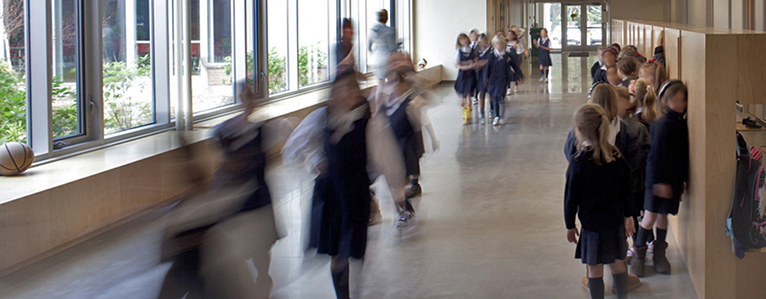
Building Successful Connections
More and more we are hearing how a child's appreciation of the interdependence of things is an important part of improving performance. Exposing children to the world around them fosters their inner leader and encourages a sense of responsibility and purpose in their own academic and social maturation. In order to improve how children relate to others, as well as their cognitive functioning, educators need to make sure that schools optimize these opportunities for connectivity.
Schools that build relationships benefit children and their communities in many ways. Students begin to understand their potential and their place in the world, and to develop a sense of citizenship. They participate in social and experience-based learning, which also encourages lateral thinking, innovation and collaboration. More generally, a welcoming environment expresses Board values such as inclusion and diversity.
Over the years we have developed a series of principles that guide our approach to building relationships in schools:
- Create a range of flexible spaces that offer a variety of accommodation, serving the individual, small groups, class-size groups, and the whole school.
- Consider the opportunity for connection between any two adjacent spaces. Allow the occupant to control the nature/amount of connection.
- Consider every space in the school a learning space and design to encourage social, peer-to-peer learning.
Thinking of schools as buildings that connect students to each other and the world around them is a powerful idea — quite different from the "cells and bells" approach of many school designs. Connectivity has to be balanced with creative and practical solutions that meet the requirements for safe schools. We consider how adjacent spaces relate visually, audibly, and in terms of movement. Careful attention to walls, openings, and thresholds provides easy, cost-effective options for making connections. When we work together in an open, collaborative relationship with our clients, solutions are balanced and holistic.
K-12 Partner Contacts
Partners Brock James and Dean Goodman lead LGA's K-12 education sector. Brock and Dean specialize in the design of buildings that foster and support connections, using an innovative approach that is well suited to meet the challenges of the 21st century school.
Brock James
416-203-7600 x 222
brock@lga-ap.com
Dean Goodman
416-203-7600 x 221
dean@lga-ap.com
